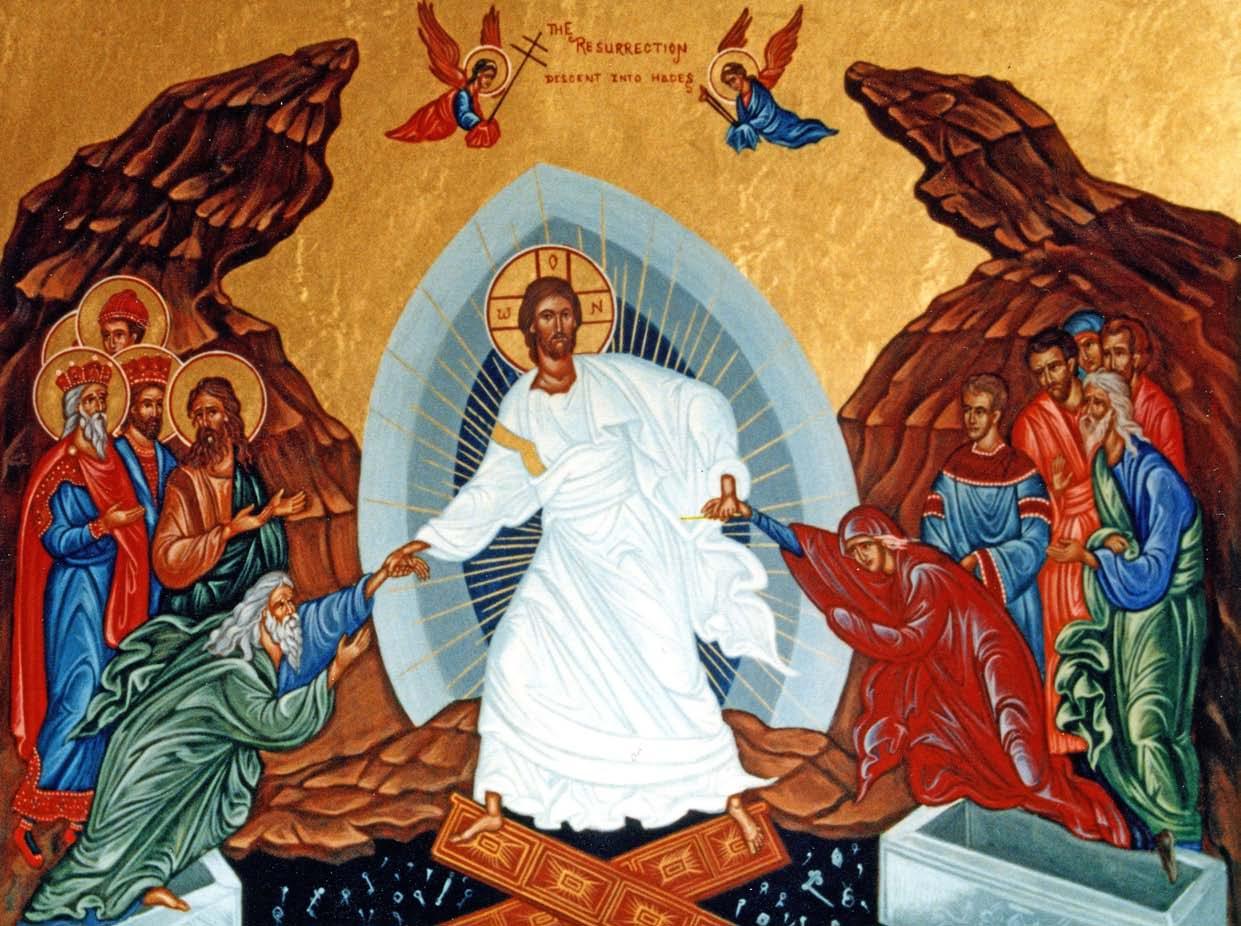
3 minute read
Jesus: The Grave’s Sheol
Sheol is a strange thing. No one is sure where the word originated. Outside the Old Testament, it doesn’t show up except in one old Jewish papyrus. There it means “grave.” Sheol is a poetic synonym for a grave. Later, in the Greek translation of the Old Testament, Sheol became “Hades,” which is used to designate either the “grave” or “hell.” Still, the best translation of Sheol is simply “grave.”
Jacob goes down in sorrow to Sheol. Joab and Shimei, too. Job describes Sheol as a dark, dusty place where worms feast on dead bodies. Righteous or wicked, king or pig farmer, all people go down to a grave. Jesus is raised from the grave, or more accurately, a tomb. Then, later, all believers in Christ will be called out of Sheol.
Advertisement
Sheol isn’t just a place. Other ancient religions believed that after death people sat in a place of gloom and silence. Unremembered. Unable to speak to the gods. Unknown by the gods. Instead, the Bible paints a different picture of Sheol for us. Yes, it looks like a typical Palestinian tomb. Dark and dusty. The bones of many dead everywhere. Where “this poor, lisping, stammering tongue lies silent in the grave.” But the descriptions of Sheol also go in different poetic directions. Israel’s prophets described Sheol as something more than just a place.
In the Book of Job and Song of Solomon, Sheol is depicted as having human qualities. In Job 2:3, Sheol is a womb. In the Psalms and Hosea (49:15; 89:48; 13:14) Sheol is a hand. In Isaiah 5:14, Sheol is a throat. In the same verse, Isaiah also describes Sheol as a monstrous behemoth. At other points in Isaiah and the Psalms, Sheol is a mouth (5:14; 141:7, respectively). In Proverbs (27:20), the writer expresses Sheol’s insatiable hunger. Finally, the Psalmist (49:15) praises God, who ransoms our soul from the hand of Sheol.

After those vivid depictions of Sheol, the Old Testament doesn’t say much. The New Testament doesn’t either. The wicked at some point are sent into torment. Those who are declared righteous by faith enjoy the resurrection to everlasting life. A few other Bible verses talk about eventual resurrected life in a new heaven and earth.
The most important point about Sheol, though, is this: God “ransoms our soul from the hand of Sheol.” God is still God of the heavens and the earth, and Sheol. Yes, the grave is a mirror that shows all of us that we are not who we ought to be. It is a clay-encrusted hand that snatches us from life to death. It is a cold, musty, insatiable beast that is never full. Mouth always open. It doesn’t care about our religion, hair color, or tuition payments. Sheol is always hungry.
But, the grave is not our final destination— especially not death that separates us forever from our Creator. No. Death is the consequence of sin. Turned in on ourselves, turned away from God, we choose death over life. We go down into Sheol because we would rather try to be gods in God’s place than let Him be God for us. The power of sin drives us into Sheol. A silent abyss. Dark and cold. Worms feast on our flesh and God’s face is obscured by grave clothes, dirt, and rock.
That is where Jesus comes in.
He is the Word of God made flesh. Jesus came into the world to ransom souls from Sheol. He doesn’t just redeem the heavens and the earth on Calvary, but the graves of all the dead, too. Jesus’ shed blood and death even redeem Sheol from the power of sin. Jesus is death’s Death. Jesus is the grave’s Sheol. If you can imagine it, Jesus is a sixfoot deep hole into which God throws our grave. He buries Sheol in Jesus. God pats down the dirt a bit more with the shovel, wipes off His face on His shirtsleeve, and says, “Glad that’s done.”
By His bloody suffering and death, Jesus frees all those on earth, and all those under the earth from the powers of sin and death—one time for all time. Abraham, who died in faith in God’s promised Savior, will be raised from Sheol. Job, who confessed he would one day see God face to face, will be raised from Sheol. John, James, and Peter, who made a good confession about Christ will be raised from Sheol. All believers in Christ have been ransomed from the clutches of the grave. He removed us and put Himself in Sheol’s palm.
Jesus lay right there in the palm of death’s hand—squeezed and broken unto death. Then three days later He crushed Sheol underfoot. He had to do it. He promised. But, not only that. As the Psalmist says, “The dead do not praise the Lord, nor do any who go down into silence. But we will bless the Lord from this time forth and forevermore. Praise the Lord!” (Psalm 115:17-18)
Rev. Donavon Riley is the pastor of St. John’s Evangelical Lutheran Church in Webster, Minnesota. He is also the online content manager for Higher Things. You can contact him at elleon713@gmail.com










